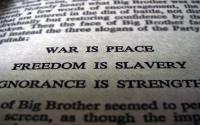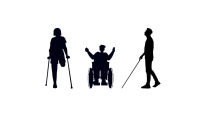Common Dreams / Published on Saturday, October 2, 2004 by the Miami HeraldMasuda Sultan
When U.S. bombs hit my home country of Afghanistan on Oct. 7, 2001, I was in an Afghan restaurant in New York with other Afghan-Americans grieving over Sept. 11. We weren't surprised that the old country was being bombed. We all knew it would happen.
Yet it was still shocking to see it happen on television. We worried about friends and loved ones who still lived there. As I watched, I remembered the hospitality and love of my aunt and her seven children, whom I had visited just two months before in Kandahar.
Most of us gathered in the restaurant supported the war, at least at first. We despised terrorism and the Taliban. We thought that the U.S. military would wage a rapid, precise war and finally free our country of its demons. We were hungry for peace and freedom, and we hoped that one last war could end the killing.
While we were concerned about civilian casualties, we kept our mouths shut. We were afraid of being rounded up, so men stopped gathering together on Saturday nights to play cards and talk politics.
On a trip to Afghanistan to film a documentary, the reality of civilian casualties hit when I learned what had happened to my family. My cousins had fled the bombs in Kandahar for a quiet village 1 ½ hours into the desert. But the village was not quiet for long.
A few days after they arrived, one evening they heard bombs exploding around them. A pregnant cousin was sliced in half by shrapnel as she ran out the door. The children made it out and scattered every which way in the dark to avoid the automatic rounds being fired by a low-flying AC-130 gunship.
One cousin, 16 years old, was picked up by her father, who tossed her over his back as he ran. When he stopped to check on her, he realized that she was dead. Another little girl showed me where bullets had grazed her body and told me of how her sister died next to her, with blood pouring out of her head.
No apology, assistance
My family never received an apology from Washington, much less any assistance. We don't hear about the civilians on the other side, but they continue to suffer. Although the Pentagon refuses to count bodies, media groups have reported that between 1,000 and 3,700 Afghan civilians died during the war in Afghanistan.
As in Iraq, civilian deaths can push otherwise good people over the line, into becoming our enemies. Unless the Bush administration realizes this, we will never be safe. We must reach out to people whom we've harmed by mistake. Targeted aid to innocent victims should be made a priority. When civilian casualties occur, aid must be delivered openly, publicly and quickly. But the Pentagon's lawyers resist this, fearing legal liability if mistakes are acknowledged.
While I am happy that the Taliban are gone and Afghanistan will have its first presidential election soon, I hope that the world never forgets the great price paid by the men, women and children of my family and countless others. And I hope that our government hears their cries and gives them the help that they need and deserve.
Masuda Sultan, an Afghan-American, is the program director of Women for Afghan Women.






